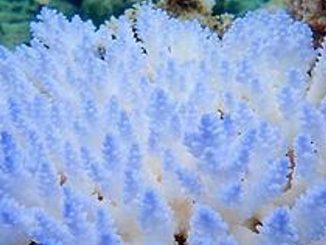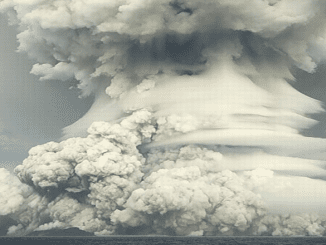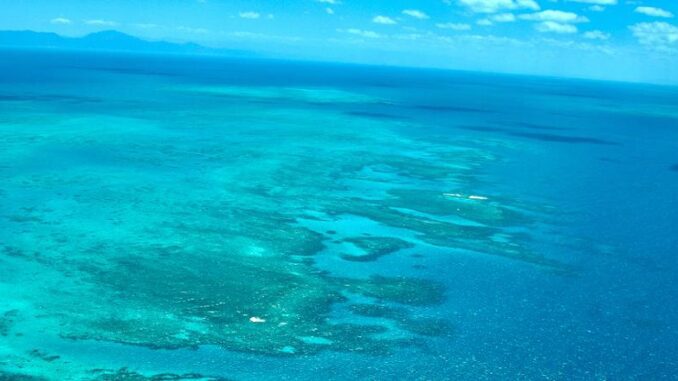
WOLLONGONG, New South Wales, Australia, August 8, 2024 (ENS) – A new 400-year temperature record published today shows the world’s largest coral reef is experiencing catastrophic damage. Warming sea temperatures and repeated mass coral bleaching events are threatening to destroy the ecology, biodiversity, and beauty of the Great Barrier Reef.
But the new research was not published in time to influence the UNESCO’s World Heritage Committee to classify the 2,300 kilometer-long ( (1,400 mile-long) reef along Australia’s northeast coast as World Heritage in Danger at its meeting last week.
Last week, UNESCO’s World Heritage Committee handed down its final decision on the state of the Great Barrier Reef, declining to list the Reef as In Danger, a classification that confers added protection. However, the Australian and American scientists who conducted the study have pushed back. They say that based on their new evidence, the Great Barrier Reef is “absolutely in danger.”
The Great Barrier Reef can be seen from outer space and is the world’s biggest single structure made by living organisms. Composed of and built by billions of tiny organisms, called coral polyps. the reef supports a wide diversity of life and was selected by UNESCO as a World Heritage Site in 1981.
The study provides new evidence of the impact that rising sea surface temperatures have had, and will continue to have, on Australia’s ecological jewel. The Great Barrier Reef is located in the Coral Sea, off the coast of Queensland, Australia, separated from the coast by a channel 160 kilometers (100 miles) wide in places and over 61 metres (200 ft) deep.
Titled, “Highest ocean heat in four centuries places Great Barrier Reef in danger,” the study published in the journal “Nature” August 8, was led by University of Wollongong (UOW) Honorary Fellow and University of Melbourne Lecturer Dr. Benjamin Henley.
The scientists reconstructed 400 years of summer sea surface temperatures in the Coral Sea. The results chronicle extreme recent ocean heat that has led to mass coral bleaching on the Great Barrier Reef. The reef has experienced five major mass coral bleaching events since 2016.
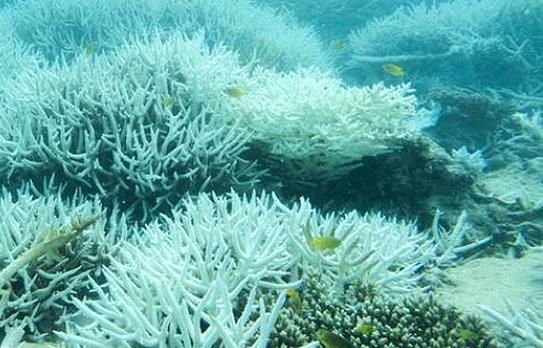
Dr. Henley and his team combined sea surface temperature reconstructions using geochemical data from coral cores previously collected from the region, and they analyzed climate model simulations of sea surface temperatures run with and without climate change.
They found that human-caused climate change is to blame for the rising temperatures in the region. The recent mass bleaching events coincide with five of the six hottest years in the new 400-year-long record.
In the years 2024, 2017 and 2020, the Coral Sea reached 400-year highs, with 2024 being the warmest on record by a large margin. The recent heat events in 2016, 2004, and 2022, were the next warmest three years on record.
“When I plotted the 2024 data point, I had to triple check my calculations – it was off the charts – far above the previous record high in 2017. I could almost not believe it. Tragically, mass coral bleaching has occurred yet again this year,” Dr. Henley said.
“In the absence of rapid, coordinated and ambitious global action to combat climate change, we will likely witness the demise of one of Earth’s most spectacular natural wonders. When you compile all of the evidence we have, it’s the inevitability of the impacts on the reef in the coming years that really gets to me,” he lamented.
Professor Helen McGregor, from UOW’s Environmental Futures, a co-author of the study, said urgent action is needed to prevent devastation of one of the world’s most important ecosystems.
“There is no ‘if, but or maybe’- the ocean temperatures during these bleaching events are unprecedented in the past four centuries,” she declared.
“The Great Barrier Reef is facing catastrophe if anthropogenic climate change is not immediately addressed. The very corals that have lived for hundreds of years and that gave us the data for our study are themselves under serious threat,” McGregor warned.
“Our climate model analysis confirms that human influence on the climate system is responsible for the rapid warming in recent decades,” said Dr Henley, who undertook most of the study as a post-doctoral researcher at University of Wollongong.
“Without urgent intervention, our iconic Great Barrier Reef is at risk of near-annual bleaching from high ocean temperatures. The Reef’s fundamental ecological integrity and outstanding universal value are at stake,” Henley said.
Coral bleaching occurs when stress causes the corals to expel the algae that live in their tissue. The algae give corals their vibrant colors and without them the coral’s white skeleton is exposed.
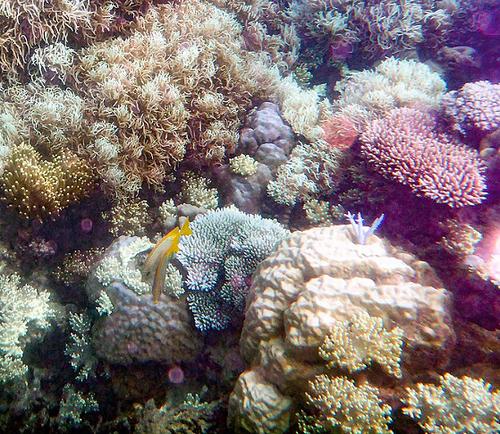
Stress from environmental disturbances and declining water quality can lead to bleaching, but recent warming in sea temperatures has led to bleaching on a mass scale.
Corals can recover from bleaching events if the stress trigger, such as extreme ocean warming, is reduced for a significant period.
“We have many of the key solutions to stop climate change; what we need is a step change in the level of coordinated national and international action to transition to net zero,” he said. “We can never lose hope. Every fraction of a degree of warming we avoid will lead to a better future for the human and natural systems of our planet.”
“We hope that our study equips policymakers with more evidence to pursue deeper cuts in greenhouse gas emissions internationally.”
While the Great Barrier Reef is the world’s largest coral reef system, the groundbreaking research has implications for coral reef systems throughout the world, highlighting the link between the long-term trajectory of extreme ocean temperatures and the ecological health and biodiversity of these complex and crucial ecosystems.
Researchers from Securing Antarctic’s Environmental Future, UOW, University of Melbourne, The University of Queensland, the Australian Institute of Marine Science, Tulane University (USA), and Columbia University (USA) contributed to the paper.
Funders include: Australian Government National Environmental Science Program, ARC Centre of Excellence for Climate Extremes, ARC Future Fellowship, Australian Government Research Training Program Scholarship, AINSE Ltd Postgraduate Research Award, G. Unger Vetlesen Foundation, U.S. National Science Foundation, U.S. National Science Foundation, National Oceanic and Atmospheric Administration, Australian Research Council (ARC) SRIEAS Grant Securing Antarctica’s Environmental Future, ARC Discovery Project, ARC DECRA
University of Wollongong is committed to addressing the United Nations Sustainable Development Goals, which provide a shared blueprint to achieve a better and more sustainable future for everyone. These projects address Goal 13, Climate Action; and Goal 14, Life Below Water.
Featured image: The Great Barrier Reef, Queensland, Cairns, October 10, 2016. (Photo by Ank Kumar)
© 2024, Environment News Service. All rights reserved. Content may be quoted only with proper attribution and a direct link to the original article. Full reproduction is prohibited.

